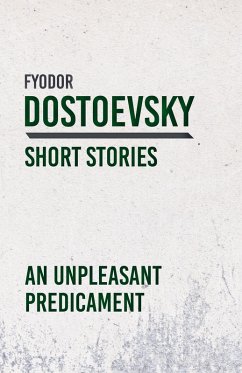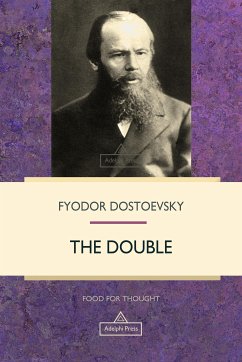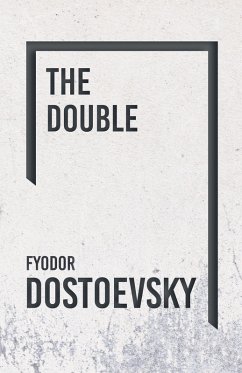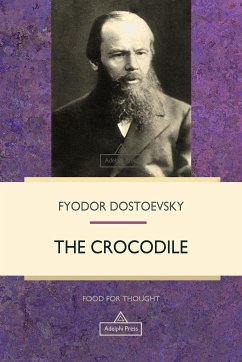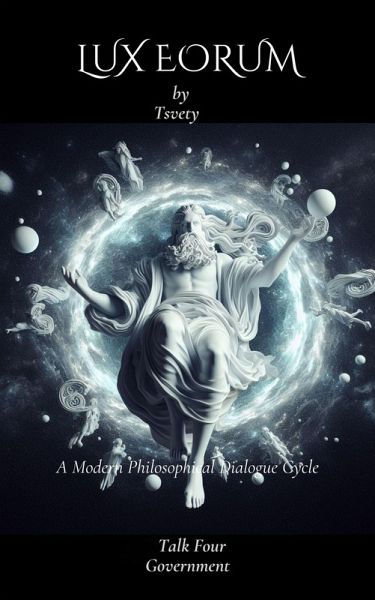
Lux Eorum (eBook, ePUB)

PAYBACK Punkte
0 °P sammeln!
In this enlightening dialogue, we delve into the intricate fabric of governance, exploring the individual and psychological imperatives that underpin our collective quest for political regulation. With a keen eye on the dynamics of liberal society and the nuances of democracy, the conversation unfolds into a nuanced exploration of political change.The dialogue commences by probing the fundamental question of why individuals feel an inherent need for political regulation. Drawing on insights from cultural studies and psychology, the participants engage in a thought-provoking analysis of the hum...
In this enlightening dialogue, we delve into the intricate fabric of governance, exploring the individual and psychological imperatives that underpin our collective quest for political regulation. With a keen eye on the dynamics of liberal society and the nuances of democracy, the conversation unfolds into a nuanced exploration of political change.
The dialogue commences by probing the fundamental question of why individuals feel an inherent need for political regulation. Drawing on insights from cultural studies and psychology, the participants engage in a thought-provoking analysis of the human psyche's yearning for order, security, and a sense of belonging within the political framework. The intersection of cultural values, personal aspirations, and the innate desire for stability is examined, shedding light on the intricate dance between the individual and the societal need for governance.
As the discourse evolves, the spotlight turns towards the ideals of a liberal society and democracy. The participants engage in a philosophical exploration of the core tenets that underpin these concepts, dissecting the delicate balance between individual freedoms and societal cohesion. The dialogue skillfully navigates through the complexities of liberal values, weighing the benefits of personal autonomy against the responsibilities that come with living in a democratic society.
A significant portion of the discussion is dedicated to democracy's role in fulfilling the psychological needs of citizens. The dialogue contemplates the role of civic engagement, political participation, and the sense of empowerment that democracy bestows upon individuals. Drawing from both cultural studies and legal perspectives, the participants explore how democratic governance becomes not just a political system but a channel through which individual voices find resonance in the broader socio-political landscape.
Political change emerges as a central theme in the latter part of the dialogue. The participants engage in a robust examination of the catalysts that drive political transformation and the inherent challenges that accompany such shifts. From historical precedents to contemporary examples, the conversation weaves a rich tapestry of insights, presenting a nuanced understanding of how societies grapple with the imperative for change while preserving the essence of their political identity.
In conclusion, this dialogue serves as a compelling journey through the intricate interplay of individual needs, liberal society, democracy, and political change. It is an intellectual odyssey that invites readers to reflect on the philosophical foundations of governance, offering a profound exploration of the forces that shape our political landscape.
This insightful dialogue, with its blend of cultural studies, legal perspectives, and philosophical inquiry, is poised to captivate readers and spark contemplation on the complexities inherent in the ever-evolving tapestry of governance.
The dialogue commences by probing the fundamental question of why individuals feel an inherent need for political regulation. Drawing on insights from cultural studies and psychology, the participants engage in a thought-provoking analysis of the human psyche's yearning for order, security, and a sense of belonging within the political framework. The intersection of cultural values, personal aspirations, and the innate desire for stability is examined, shedding light on the intricate dance between the individual and the societal need for governance.
As the discourse evolves, the spotlight turns towards the ideals of a liberal society and democracy. The participants engage in a philosophical exploration of the core tenets that underpin these concepts, dissecting the delicate balance between individual freedoms and societal cohesion. The dialogue skillfully navigates through the complexities of liberal values, weighing the benefits of personal autonomy against the responsibilities that come with living in a democratic society.
A significant portion of the discussion is dedicated to democracy's role in fulfilling the psychological needs of citizens. The dialogue contemplates the role of civic engagement, political participation, and the sense of empowerment that democracy bestows upon individuals. Drawing from both cultural studies and legal perspectives, the participants explore how democratic governance becomes not just a political system but a channel through which individual voices find resonance in the broader socio-political landscape.
Political change emerges as a central theme in the latter part of the dialogue. The participants engage in a robust examination of the catalysts that drive political transformation and the inherent challenges that accompany such shifts. From historical precedents to contemporary examples, the conversation weaves a rich tapestry of insights, presenting a nuanced understanding of how societies grapple with the imperative for change while preserving the essence of their political identity.
In conclusion, this dialogue serves as a compelling journey through the intricate interplay of individual needs, liberal society, democracy, and political change. It is an intellectual odyssey that invites readers to reflect on the philosophical foundations of governance, offering a profound exploration of the forces that shape our political landscape.
This insightful dialogue, with its blend of cultural studies, legal perspectives, and philosophical inquiry, is poised to captivate readers and spark contemplation on the complexities inherent in the ever-evolving tapestry of governance.
Dieser Download kann aus rechtlichen Gründen nur mit Rechnungsadresse in A, B, CY, CZ, D, DK, EW, E, FIN, F, GR, H, IRL, I, LT, L, LR, M, NL, PL, P, R, S, SLO, SK ausgeliefert werden.




